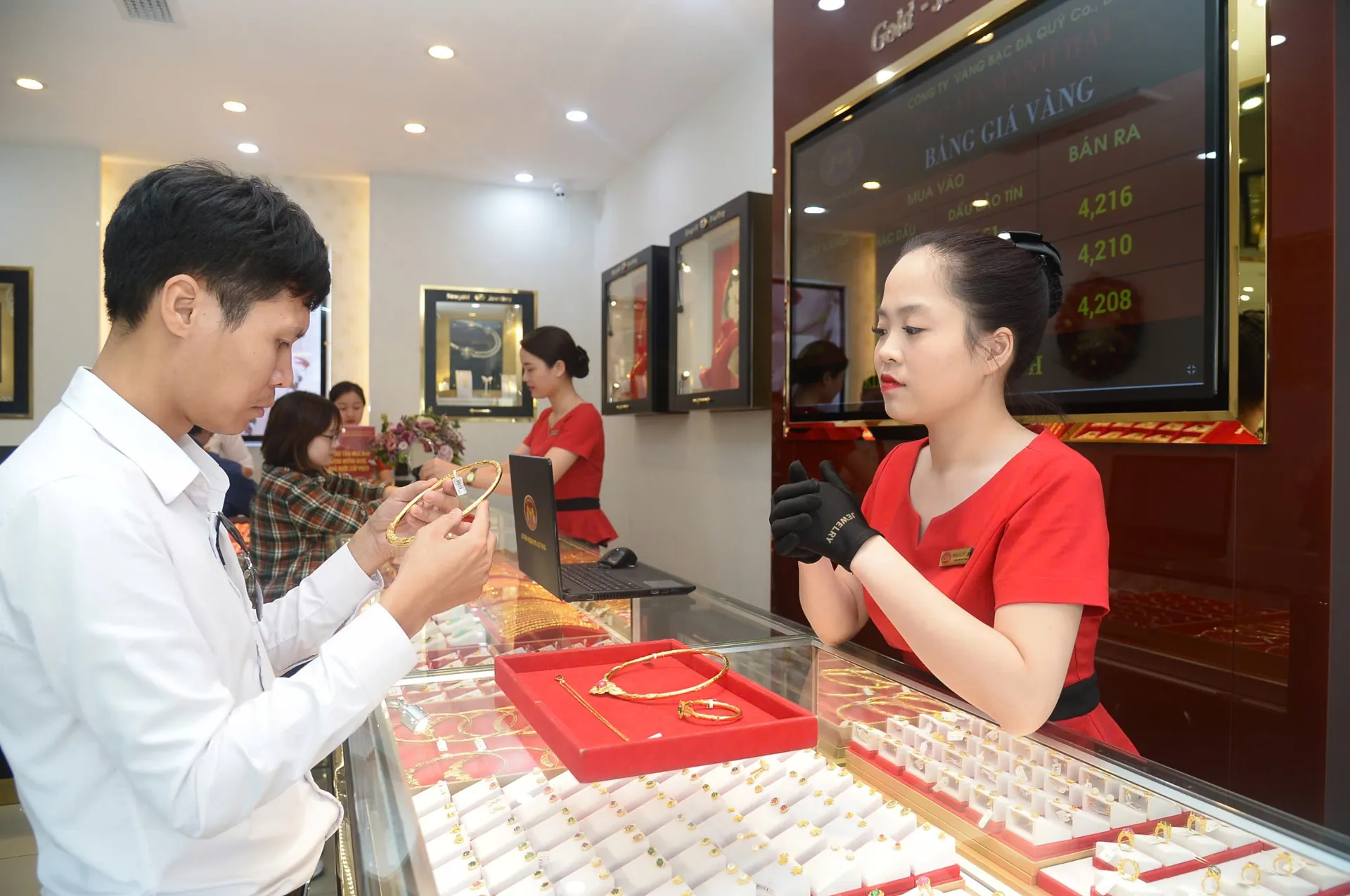Gold market reform must encourage investment, deter hoarding
Vietnam needs to revise existing laws to facilitate a free gold trading market, which will boost the economy, a local economist has said.
The revision of the Government Decree No. 24/2012/ND-CP on Gold Trade Management aims to encourage people to channel financial resources from the gold trade into production and business.
Economist Nguyen Tri Hieu spoke to Kinh te & Do thi Newspaper about his views on the issue.

Economist Nguyen Tri Hieu.
What caused the recent sharp fluctuations in the domestic and global gold markets?
Domestic gold prices are dictated by global gold prices, which change in response to international developments. Geopolitical issues and changes in US trade policy under President Donald Trump make gold prices volatile, increasing the risks for gold buyers.
Besides global influences, the domestic market is growing as demand outstrips supply. The limited supply of gold in Vietnam, combined with large suppliers selling small quantities, is pushing prices up.
Domestic gold prices are up 18% so far this year. With ongoing geopolitical tensions and economic instability, gold prices are likely to continue to rise through the end of the year.
There will be price corrections along the way when investors attempt to lock in profits. As gold trading is very risky, people should think carefully before buying gold at this time.
What do you think about the fact that people buy gold on the upside and sell on the downside?
Global prices have risen so fast that many Vietnamese people rush to buy gold without considering the prices, driving local prices higher than international levels. But when they see a correction in the global market, they will cash in previous investments, causing the local market to fall even faster.
As the price rises, gold companies often widen the spread between buying and selling, exposing buyers to higher risks. People shouldn't borrow money to invest in gold as this can lead to financial losses.
Those who bought early are now seeing good profits. Short-term, speculative investment is risky due to the unpredictable nature of the gold market.
Why are gold rings sometimes more expensive than gold bars in Vietnam?
In the past, gold rings were priced much lower than gold bars, sometimes by tens of millions of dong. Now, the gap exists only because the supply of gold bars has diminished, so buyers are switching to gold rings, especially plain 24K.
However, the supply of gold rings can vary over time. So companies buy back as many gold rings as they buy gold bars. As there are no uniform pricing rules for gold jewelry, prices can vary widely between shops and brands.
The steady rise in gold prices and frequent new highs could hit Vietnam's economy hard. Investors may shift their capital into gold for profits rather than spending it on production and economic activities. This would make it harder to control inflation and stabilize the economy.
What issues arise from “gold agents” or trading groups on social media that become active during price spikes?
In 2024, the State Bank of Vietnam successfully narrowed the gap between domestic and global gold prices. However, supply and demand still do not match.
The central bank has neither imported gold nor licensed companies to do so, making local supplies scarce and increasing reliance on smuggling. In Vietnam's balance of payments, a large amount of foreign currency flows out of the country without a trace, which is likely to be used to smuggle goods, including gold.

Gold products displayed and sold in a shop in Hanoi's Cau Giay District. Photo: Pham Hung/The Hanoi Times
To solve this, we need to increase the supply of gold to meet market demand. Gold companies should be certified to import gold, and the government should end the monopoly of the gold trading company SJC. We also need a stronger partnership between the central bank and ministries to control and monitor the gold market.
Vietnam also needs to strengthen international cooperation to combat smuggling, ensure a balance between supply and demand, and align domestic gold prices with global prices. This is key to preventing the "goldization" of the economy.
What changes should be made to Decree 24 to both open up the market and prevent hoarding?
First, the decree should encourage people to sell gold and invest the proceeds in business. The government and central bank must offer tax and policy incentives to shift investment from gold to manufacturing. At the same time, public confidence in the Vietnamese dong needs to be strengthened through a stable monetary policy.
Second, the state monopoly on any gold brand should be abolished. Transparency and competition must be ensured to prevent market dominance and manipulation.
Third, gold imports must be controlled to avoid negative effects on trade and exchange rates. Qualified businesses should be allowed to import gold, with annual quotas to monitor their activities. With more supply and no brand monopolies, gold prices will stabilize as the market becomes more competitive.
Barring imports could lead to increased smuggling, especially now that prices are volatile and the gap between domestic and international prices is VND4 million-VND5 million (US$154-US$192) per tael.
Fourth, Vietnam needs to develop alternative financial and investment products. We should consider a gold derivatives market, gold accounts or gold savings certificates. A national gold exchange could allow people to invest in gold without holding physical gold.
Informal gold exchanges already exist, but there are no legal regulations yet. Vietnam lacks a legal framework to create a formal investment platform and solve the problem of domestic gold hoarding, which drives up prices.
Are there international models that Vietnam can learn from?
Many countries, such as China, Thailand, Malaysia, and Indonesia, manage gold as a commodity through market mechanisms. Central banks do not produce or sell gold but use policy tools to manage the market.
For example, China's gold exchange allows companies to trade gold based on fixed morning and afternoon prices. Large state-owned banks can issue gold certificates backed by the exchange.
Traders are divided into different tiers for transactions. Citizens can buy and sell these certificates, exchanging them for physical gold only when needed for production or personal use.
Thank you for your time!








